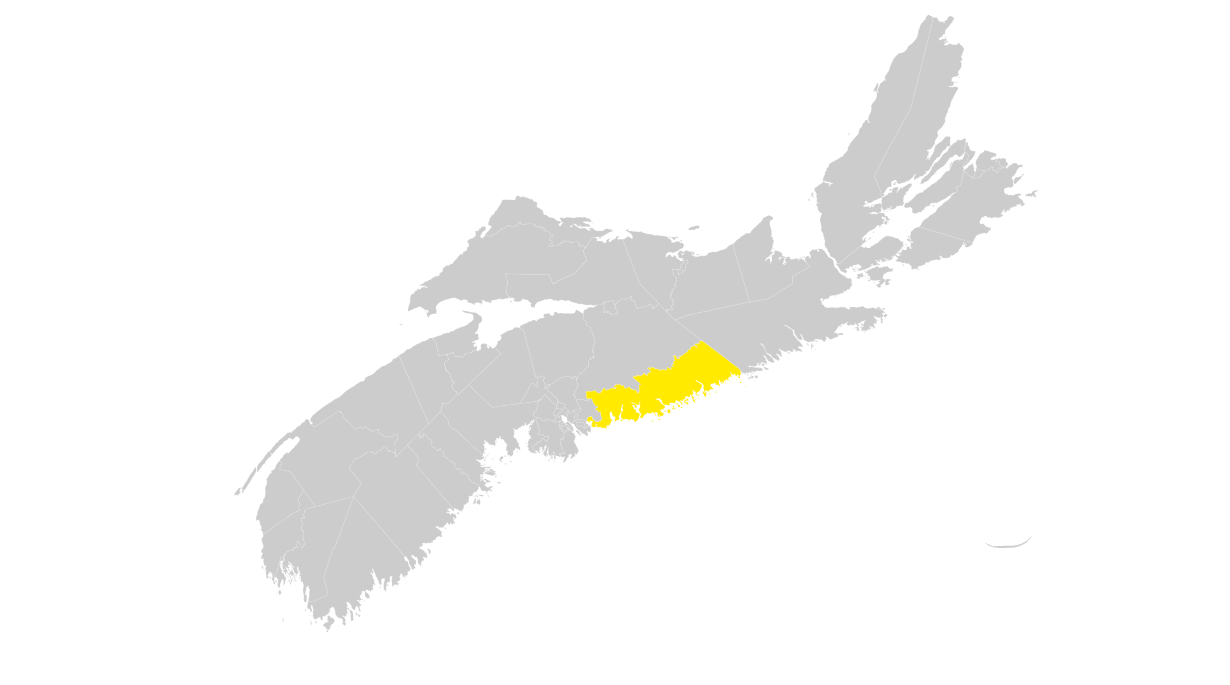Election Writ 11/18: Nova Scotia's bellwether
Eastern Shore has voted with the governing party 15 times in a row. Will it keep the streak going?
Welcome to the Election Writ, a special-edition newsletter to get you up-to-date on the ongoing campaign in Nova Scotia.
Since 1970, voters in the riding of Eastern Shore have backed the governing party in election after election, choosing an MLA who ends up on the winning side 15 times in a row.
Are they likely to make it 16 on November 26?
The riding of Eastern Shore is part of the Halifax Regional Municipality, stretching from Laurencetown, just east of Dartmouth and Cole Harbour, to the border of Guysborough County. There are 17,580 voters spread across the sprawling riding, many of them concentrated in the western portion of it closest to the urban core of Halifax, with the rest sprinkled along the coast.
It has changed shape and name over the years. When it was Halifax Eastern Shore from the 1967 election through to the 1974 election, it included the Preston, Cole Harbour and Eastern Passage areas, but was otherwise largely contiguous with the modern riding. Cole Harbour and Eastern Passage were portioned off ahead of the 1978 election. Preston followed before the 1993 election, when the riding also lost its “Halifax” name. For the elections held between 2003 and 2017, the western half of the riding was attached to Guysborough, but the riding regained this area that had historically been a part of the Eastern Shore riding before the 2021 vote.
While the riding has shifted around, its voters have solidly stuck with the government. It’s the only riding to have sided with the governing party in every election since 1970. The next-closest bellwether is neighbouring Guysborough-Tracadie, which started its winning streak in 1984, followed by Lunenburg, which began selecting champs in 1999.
Not only has Eastern Shore been a reliable bellwether in terms of choosing winners and losers, it has also hewed closely to the voting intentions of Nova Scotians as a whole. In the chart below, I’ve plotted the vote shares for the PCs, Liberals and NDP in Eastern Shore in solid lines, with the parties’ vote shares across Nova Scotia shown in dotted lines. Almost without fail, when Nova Scotians have moved toward or away from a party, voters in Eastern Shore have followed suit (and vice versa).
Since 1970, Eastern Shore has been a little bit more blue than the province as a whole. The PCs have averaged 42.7% in the riding over that time compared to 38.4% in Nova Scotia. But in the majority of past elections, the PC result in Eastern Shore has been within 7.4 percentage points of the party’s support throughout Nova Scotia.
The Liberals have under-performed in Eastern Shore, but only by an average of 2.6 points. Much of that was during the 2003, 2006 and 2009 elections, when the Liberals were particularly weak in this part of Nova Scotia. But most of the time, the Liberals in Eastern Shore have had a result within 6.2 points of their result across the province.
The NDP’s support in Eastern Shore has tracked very closely with their support across Nova Scotia. The party has averaged 23.2% in the riding since 1970, nearly identical to its average of 23.1% of the vote across the province. The NDP’s score here is usually within 3.9 points of their overall take.
Not only are the voters of Eastern Shore good at picking winners, they tend to over-compensate in favour of the party that’s going to win.
On average, the party that wins the provincial election has over-performed in Eastern Shore by 6.1 points compared to its provincewide vote share. Parties that lose have under-performed by 2.9 points.
So, if you want to know who is going to form government on election night, all you might have to do is watch the returns in Eastern Shore. And, based on current projections, it could make it an early night. My own numbers have the PCs winning Eastern Shore with well over 50% of the vote.
Now, to what is in this instalment of the Election Writ:
The latest news from the Nova Scotia campaign trail, including a very Canadian kerfuffle.
The last pre-debate poll of the campaign shows the PCs widening their lead over the Liberals and NDP.
Official opposition status looking tougher for the Liberals to achieve if the election were held today.
This week in Nova Scotia election history.




